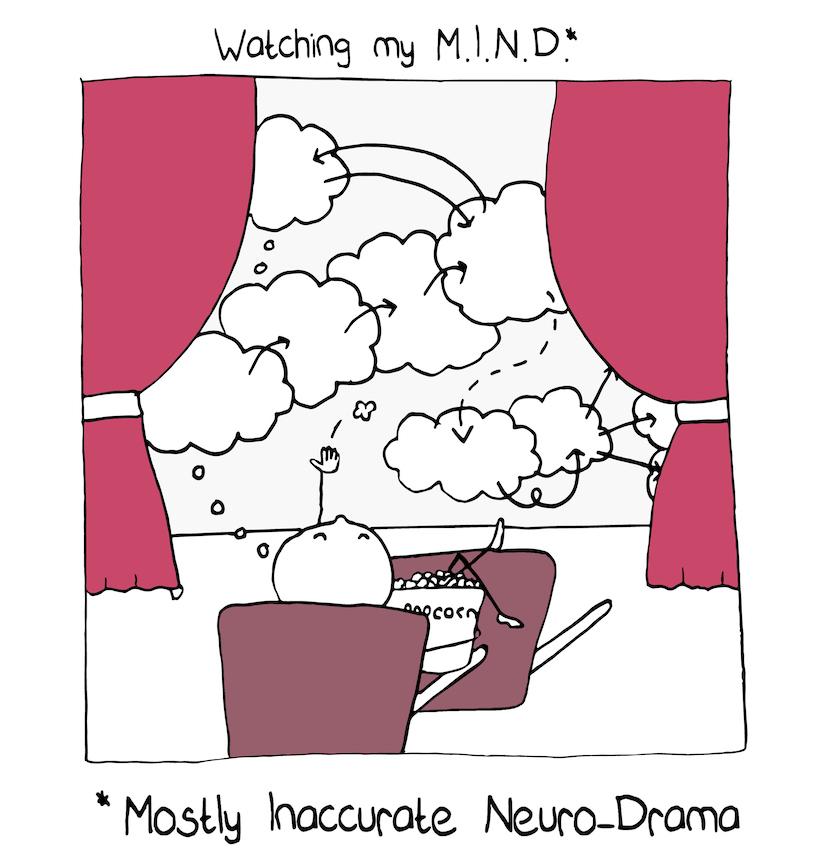The Delight in Exploring Inner Territory

IMAGE OF THE WEEK

As long as we cling to the idea that this is "my mind, my own, personal mind," we will have a strong tendency to look as good as possible. But if we observe the mind from a non-personal viewpoint, from the perspective from non-ownership, simply observe our minds and how they function, we will be less trapped by judgments.
To be attentive to the psychological structure, doesn't mean we must disappear somewhere and give up all relationships, responsibilities. The art is to stay within the movement of relationships, to continue with work, to be a responsible citizen, and to be attentive to the play of the mind. But we'll have to be very alert, for the mind is subtle, wily, full of tricks.
It's a tremendous thrill to see the beginnings of anger or jealousy or greed, not simply to be caught unawares when the emotion is full-blown and has us in its grasp, but to see the first tiny movements of emotion. Where does it spread, what does it do to our behavior? Just as there is joy in exploring an unknown wilderness, there is a delight in exploring the inner territory, in watching the volcanoes explode without any movement of defense, judgment, sense of ownership.
If we have never observed anger in ourselves from subtle beginnings to full explosion, we will always be caught in its force. We may try to suppress the behavior of anger, but still it will do its damage and we will not be free of it.
Attentiveness without any movement of the defense structure has its own intelligence. But the automatic tendency is to bring in defenses, judgments, and to move from observation to justification, evaluation. [...] All the explanations, justifications may be true, but they prevent direct perception of what it is that anger does to our bodies, to relationships, to the work we do.
If we defend any emotion, anger, fear, jealousy, we own it, we cling to it, and we accept a life in which emotional imbalances can wreak whatever havoc they like.
From "Spirituality and Social Action: A Holistic Approach"
SEED QUESTIONS FOR REFLECTION: What does observing 'anger in ourselves from subtle beginnings to full explosion' mean to you? Can you share a personal story when you were attentive to an emotion without any movement of the defense structure? What practice helps you delight in such attentiveness?